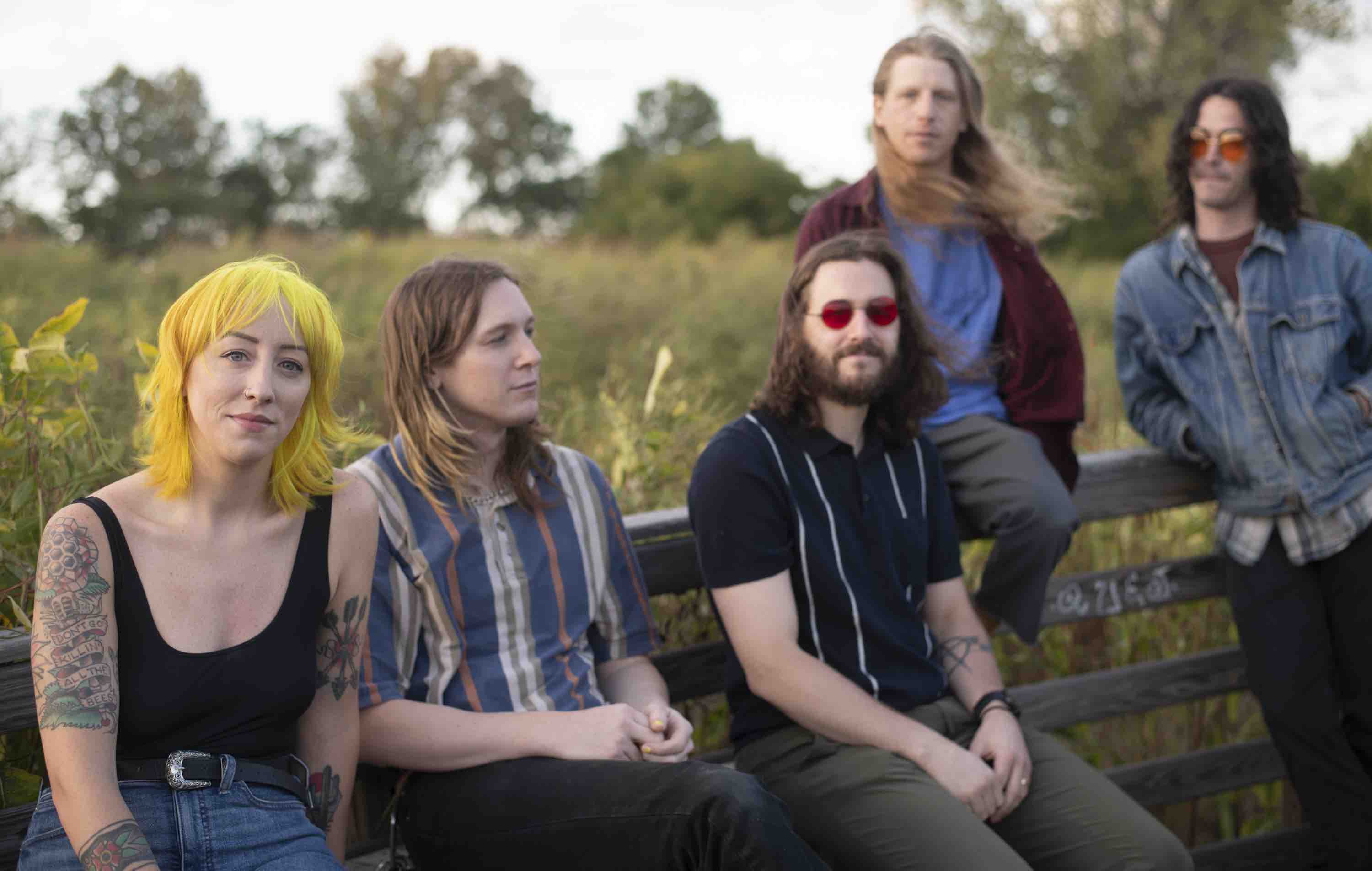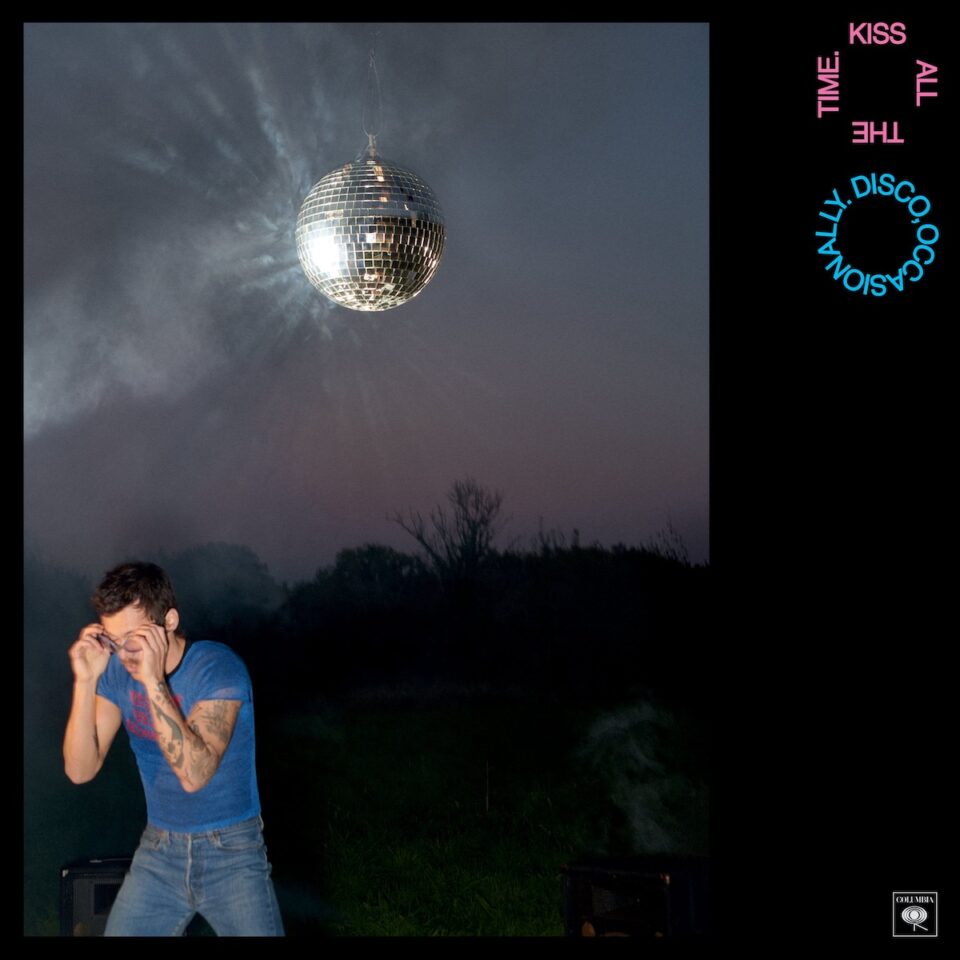For some reason it’s hard to think about major life changes without ascribing them a wholly positive or negative connotation. In most cases, for example, it feels like relationships end with at least one party looking back on it as a complete waste of time and a prolonged source of stress. Which, yeah, probably fair, but there’s a certain sense of self-awareness gained from these situations that could conceivably be key to making future relationships work—or certain red flags made visible preventing other future relationships from commencing.
It feels like with age comes the wisdom to reflect on this type of experience and see something deeper than the happiness or sadness it so clearly imparts in us—to see the full value or significance of it instead. Don’t Know What You’re in Until You’re Out, the second LP from Augusta Koch’s post-Cayetana project Gladie, seems to explore every facet of this idea, from Koch’s new (literally) sober perspective on her adult years to the fact that a considerable faction of the record was rescued from previous recordings that were, in Koch’s own words, “not good.”
Working in their own studio granted the five-piece the time and space to fully explore the musical and lyrical ideas that comprise these 11 tracks about hitting the replay booth and analyzing the footage from a new and slightly removed vantage point, totally unmoored from the strong feelings that proved overwhelming in the moment. “We decided to name the record this because it deals a lot with the theme of shifting into a new mindset, and with that change you can objectively look back and see what you were going through without your thought processes being clouded by being in the thick of it,” Koch explains.
“I think it’s also an ambiguous title in a way,” she adds, “because I like the idea that it can be interpreted as both a positive and a negative. Like, the duality of both ‘you don’t know what you’re in until you’re out’ could seem sad because it implies hardship and turmoil, but it can also seem hopeful in the sense that although you’re going through something really rough, there’s hope that it will get better—you will change, you will survive it, and you will be able to view yourself and your surroundings from a totally new perspective.”
With the LP officially dropping tomorrow via Plum Records (Koch’s own label formed with her Cayetana bandmates), check out the early stream below, and read through Koch’s thorough breakdown of each track.
1. “Purple Year”
Perhaps not the most original idea, but very relevant to the title, the record begins how it ends. The same chords and cello (played by our very talented friend, Mark Glick) that are in “Something Fragile” are present here, just a little more stripped down and with an uneasy feedback swell slowly swallowing any form that the song started with. We thought this would be a cool way to signal to the listener [hacker voice] “I’m in.” I don’t know, The Weakerthans did it on “Reconstruction Site” and they literally can do no wrong.
2. “Born Yesterday”
“Born Yesterday'” was written about eight months into not drinking anymore. I felt like I was experiencing a second adolescence. I was completely overwhelmed and flooded with emotions.
3. “Mud”
“Mud” is about moving through life as a late bloomer. There's kind of this trope about late bloomers being a negative thing, but personally I find it to be the opposite. To me, all good things take time to marinate, and we should embrace the fact that people move on different timelines. Nature doesn’t all bloom at the same time.
4. “Hit the Ground Running”
I did a lot of evaluating what love means during this time. While reading bell hooks’ book All About Love I was inspired to think of my own love ethic. I landed on “to love in a way that the other person still feels free.” I want to love and be loved in a way that doesn’t feel restrictive, and where there is always room for growth. My favorite part about this song is the horn part that Mike Park and Brian Lockerm created.
5. “Nothing”
I kept kind of coming back to this idea of not wanting anything—not in a depressing way or necessarily a nihilistic way, but just of taking the word “want” out of my vocabulary. How that feels to not always be forcing a progression, that constant American agenda to push and push and push and push until you die.
6. “Soda”
“Soda” is a love song, maybe not your typical love song. The song at its root is about being around people who make you feel comfortable in your skin. I use the word “normal” in jest because a lot of what our society deems as “normal” behavior is kind of, in my opinion, wrong and isolating to a lot of people. We are taught to hate ourselves, that we aren’t enough, love has conditions, etc. “Soda” imagines a world where we can create our own “normal” when we’re around the people that make us feel seen.
7. “Heaven, Someday”
“Heaven, Someday'” was written during the height of the 2020 doomscroll-bad-news factory, when we were all putting in overtime. It’s about trying to combat the fear of the outside world and your inner demons at the same time. There’s still some hope to hold onto, though, and it’s important to remember that even both the inside and outside feel inhabitable.
8. “Fixer”
This was a song I [Matt] wrote a couple years ago, but it never got a proper recording/release and it felt like it fit with the theme of the record, so we decided to include it. It’s about recognizing parts of your past that can make your present feel shaky and your future feel uncertain. Sometimes you need to look back to understand what’s ahead of you, even if there’s some difficult reconciliation to be done.
9. “Smoking”
“Smoking” was written about having a panic attack in a gas station parking lot in the town I grew up in. More thoughtfully, though, it’s about having one of those huge life moments when you know everything’s about to change forever and you have to gear up and just let it happen.
10. “For a Friend”
“For a Friend” is about having to witness someone you love grieving the life of someone they love. Acknowledging the fact that there’s not much you can do for someone who’s experiencing that type of pain except for sitting with them through it.
11. “Something Fragile”
This song is about coming out of a bad place and acknowledging the fact that depression can create blinders in your relationships. I felt like it made sense being the last track because it encapsulates so much of what the record is about. Can we move through huge life changes, in relationships with the ones we love, while allowing them to also grow and change at the same time?







